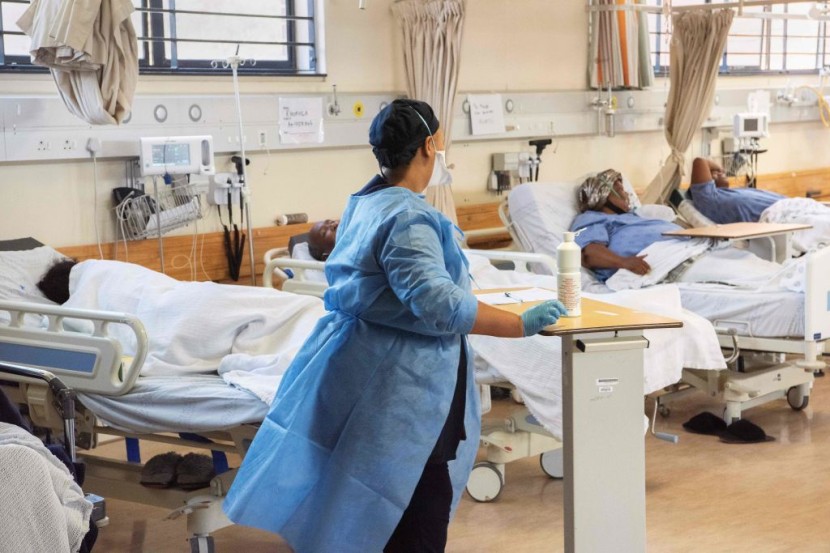
As the New Year shifted from East to West, and New Zealand had already missed the official fireworks in Auckland until 2022, Australia promised to kick off the worldwide celebration in vintage form, with its typical magnificent pyrotechnics mirrored in the harbor beneath the Sydney Opera House.
The Arc de Triomphe in Paris, Big Ben in London, and the Petronas Towers in Kuala Lumpur were all lit up with fireworks. The golden ball was about to drop in Times Square, but the throng yelling out the year's end countdown would be a fraction of its usual size, disguised up, socially distanced, and holding vaccination papers, India Times reported.
Omicron variant has passed peak in South Africa
South Africa, which was one of the first countries to raise the alarm about the new fast-spreading coronavirus variant, handed the world one of the year's final great good shocks, declaring that the Omicron wave had crested without a massive jump in mortality.
South Africa has lifted nightly curfews set almost two years ago, with officials claiming that the country may have passed the top of its fourth wave of COVID-19 infections, giving optimism to other countries dealing with a rise in cases caused by the fast-moving Omicron variant.
Following meetings of the National Coronavirus Command Council (NCCC) and the President's Coordinating Council (PCC), which reviewed updates on the management of the current fourth wave of COVID-19 in South Africa, the Presidency announced its decision on Thursday.
The Omicron variant, initially discovered in South Africa last month, is presently driving the wave, MINT reported. The number of confirmed illnesses for the week ending December 25, 2021, was 89,781, down from 127,753 the week before. During the pandemic, South Africa had about 3.5 million COVID-19 cases and over 90,000 fatalities, more than any other African country.
The country's vaccination levels, reduced hospitalization rates, which have not resulted in capacity being overburdened as in past waves, and a minor increase in the number of deaths in all provinces were other reasons that led to the curfew timings being relaxed.
Government data indicate that the number of infections declined by almost 30 percent to slightly under 90,000 for the week ending December 25, down from around 127,000 in the preceding equivalent week. Over the last one and a half weeks, the number of hospital admissions has also decreased dramatically.
Per The Washington Post via MSN, many other nations dealing with Omicron-driven infections are likely to be keeping a close eye on the recent South African wave's comparatively quick transit. However, considering South Africa's relatively young population, at least one notable infectious disease specialist has advised against extrapolating from the country's findings. The country is also in the midst of the Southern Hemisphere summer, a period of the year when respiratory diseases are rare.
Nonetheless, Catherine Bennett, an epidemiologist at Deakin University in Australia, believes that the drop in hospital admissions that coincided "almost in real-time" with the drop in infection count suggests that omicron patients require less medical intervention than those infected with previous versions of the novel coronavirus.
WHO worries about Omicron, Delta variants' "tsunami of cases"
Scientists are still learning about the variant's transmissibility, severity, and capacity to elude vaccinations and immune responses, and top officials have cautioned that preliminary findings showing that Omicron causes lesser illness is too early to be optimistic.
In November, the WHO labeled Omicron a "variant of concern," and the B.1.1.529 variation was first reported to the agency on November 24 from South Africa. The omicron wave began with young South Africans, and the country quickly became the hub of the outbreak.
The United States prohibited travel from South Africa and seven other southern African countries on November 29. President Joe Biden issued a proclamation removing the restriction on Tuesday, as per Fox News.
Related Article : Study Identifies Certain Antibodies That can Stop Omicron Infection, Affect the Notorious Spike Proteins








